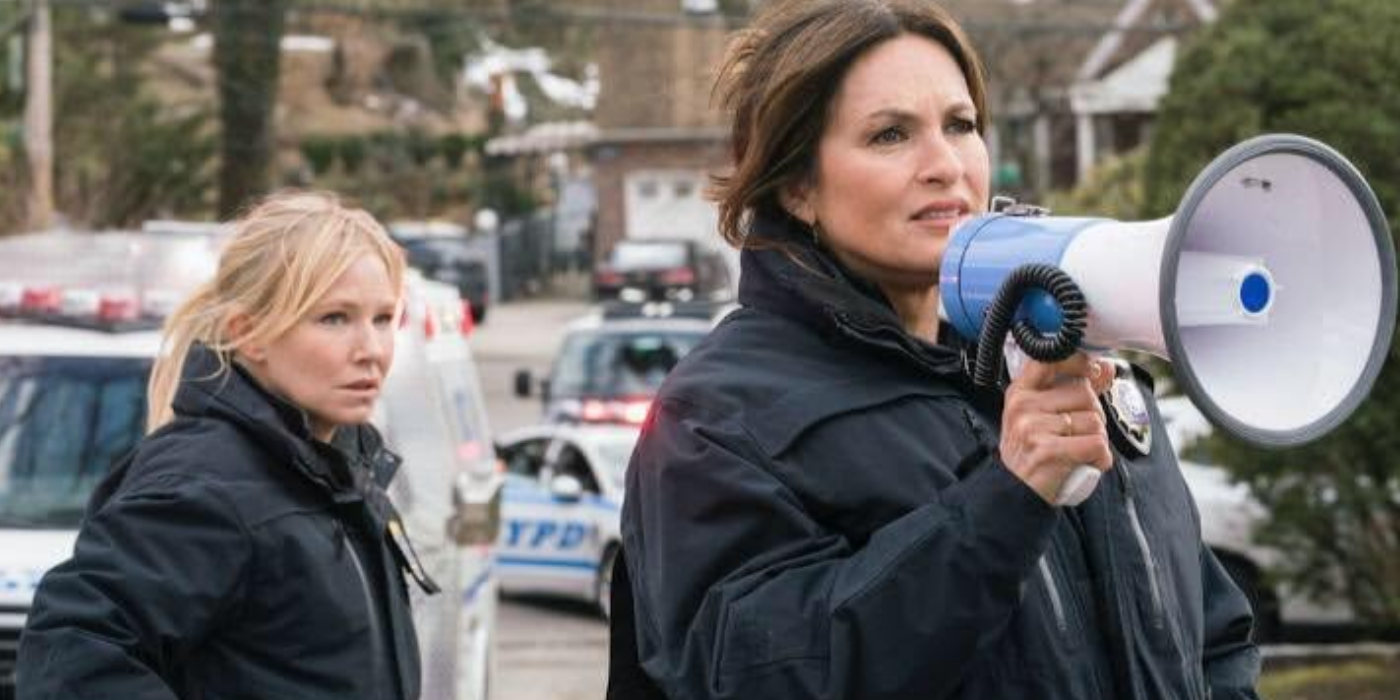Olivia Benson’s ongoing storyline in Law & Order: SVU season 25 expands upon the series’ biggest promise. The long-running police procedural has centered around Benson (Mariska Hargitay) for 25 years, often showing her working on Law & Order: SVU cases based on true events. She was initially a rookie detective who decided to join the SVU squad because of her history as a child conceived during rape. Over the years, she has risen to the rank of captain but has never lost her passion for helping survivors.
For the past 25 years, the series has supported survivors on-air and in real life, with Hargitay founding The Joyful Heart Foundation in 2004 for this purpose. Law & Order: SVU has been confirmed for season 26, allowing it to continue telling stories that help survivors feel seen and understood for at least another season. In most episodes, Benson acts as an advocate for the survivors she works with, encouraging them to pick up the pieces of their lives and keep moving forward. In season 25, Benson also has an ongoing storyline that supports the series’ central mission.
Law & Order: SVU Season 25’s Benson Storyline Expands On Its Commitment To Supporting Trauma Survivors

During Law & Order: SVU season 25, Benson has had a hard time dealing with the trauma of having seen a kidnapping victim with her abductor and not realizing until it was too late that anything was wrong. She has fueled these feelings of guilt and anguish into her determination to find the victim, sometimes at the expense of other cases, and her hyperfocus on this case has triggered concern among her colleagues.
Related ArticlesBenson’s insistence on finding this missing girl is a symptom of a mental health condition called vicarious trauma. This condition is caused by prolonged exposure to others’ trauma and is common among people in helping professions, including police officers. It results from interacting regularly with people who have experienced severe trauma, causing the helper to react as if they had experienced the trauma themselves. After 25 years of helping sexual assault survivors, it is unsurprising that Benson has developed this condition.
Law & Order: SVU’s core mission is to help sexual assault survivors by representing them accurately and giving them a hero who is determined not only to seek justice for them but to help restore the sense of control they lost due to the attack. The series has given Benson traumas of her own before, most notably in season 15 when she was kidnapped and tortured by a psychopath she was investigating. Her SVU season 25 storyline expands on these previous stories and offers people who have vicarious trauma the same support as the other survivors depicted in the series.
Law & Order: SVU’s Olivia Benson Has Always Been There For Everyone Else

Benson has gone above and beyond the call of duty, often acting more like a social worker than a cop. She often gives survivors her cell phone number and drops everything when they call. She also spends long hours on each case and tolerates interruptions to her personal life if it means catching a perp that has gotten away with sexual assault in the past.
Having someone like Benson, who is always there for everyone else, develop vicarious trauma is more powerful than introducing a guest star who has the condition, even if the guest character is also a cop. Benson is a well-known and beloved character, so seeing her be so different from her usual confident and supportive self is a stronger, more compelling storyline than if she were to interact for one or two episodes with a cop who had the condition. Law & Order: SVU can follow her journey rather than merely depicting the effects of vicarious trauma during one case.
This season-long arc also demonstrates the risks inherent in overextending yourself to take care of others. Benson has found self-care challenging throughout the 25 years that Law & Order: SVU has been on the air. During an early season, a family hit her with a restraining order when she refused to stay away from their daughter, and she has often put her own physical and mental health last on her agenda. These behaviors contributed to her developing vicarious trauma, so the current storyline can also make a powerful point about the need for helpers to find balance in their lives.





